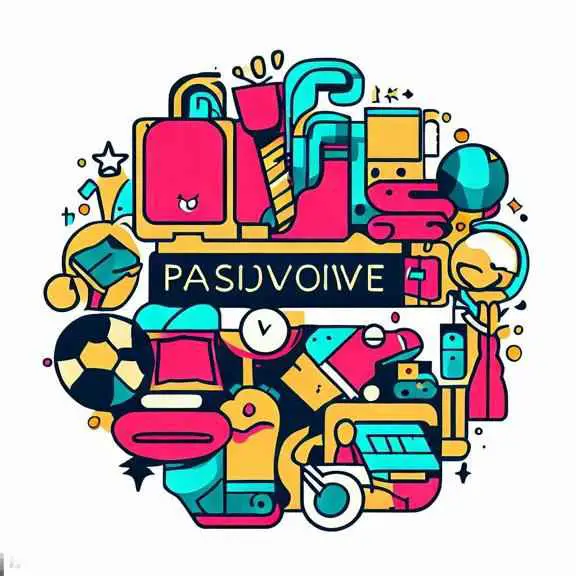Paragraph on
Pastime
for all Class, Words
by Hobbies on
A pastime is a leisure activity that people engage in for enjoyment or relaxation. Some popular pastimes include reading, gardening…, please continue reading.

Table of Content
Ad
The Paragraph on Pastime
Ad

Questions about Pastime
Ad
A pastime is a leisure activity that people engage in for enjoyment or relaxation. Some popular pastimes include reading, gardening, painting, playing sports, watching movies, or even just taking a nap. Pastimes can be solitary or social, and they provide a break from the stresses of everyday life. Although some pastimes require specific equipment or spaces, many can be pursued with limited resources and are accessible to anyone with a creative mind.
While people often choose pastimes based on their personal interests, the benefits of engaging in a leisure activity extend beyond simple enjoyment. Participating in a pastime can improve physical and mental health, boost creativity and productivity, and even foster new social connections. Research has shown that regularly engaging in leisure activities can reduce stress and depression, which are common problems in modern society. Moreover, it has been found that individuals who engage in pastimes regularly have a stronger sense of purpose and fulfillment in life.
In addition to the personal benefits of pastimes, these activities can also contribute to the cultural heritage of a society. Hobbies like knitting or woodworking, for example, have often been passed down through families and communities for generations. Participating in a cultural pastime can connect individuals to their ancestry and history and allow them to share their values and traditions with future generations.
Overall, pastimes offer a variety of positive and meaningful experiences to those who engage in them. From improving health and wellbeing to preserving cultural heritage, pastimes have something to offer everyone.
- What is a pastime?
- A pastime is a leisure activity that people engage in for enjoyment or relaxation.
- What are some popular pastimes?
- Some popular pastimes include reading, gardening, painting, playing sports, watching movies, or even just taking a nap.
- What benefits do pastimes provide?
- Participating in a pastime can improve physical and mental health, boost creativity and productivity, and even foster new social connections. Additionally, regular engagement in leisure activities can reduce stress and depression.
- Are pastimes accessible to everyone?
- Many pastimes can be pursued with limited resources and are accessible to anyone with a creative mind.
- What is the connection between pastimes and cultural heritage?
- Pastimes can contribute to the cultural heritage of a society. For example, hobbies like knitting or woodworking are often passed down through families and communities, allowing individuals to connect with their ancestry and history.
- Can pastimes help people feel fulfilled in life?
- Yes, it has been found that individuals who engage in pastimes regularly have a stronger sense of purpose and fulfillment in life.
- Can pastimes be both solitary and social?
- Yes, pastimes can be both solitary or social.
- What is the importance of leisure activities in modern society?
- Regular engagement in leisure activities can reduce stress and depression, which are common problems in modern society.
- What are some personal benefits of engaging in a pastime?
- Personal benefits of pastimes include improving physical and mental health, boosting creativity and productivity, and fostering new social connections.
- Do pastimes have cultural value?
- Yes, participating in a pastime can contribute to the cultural heritage of a society and allow individuals to share their values and traditions with future generations.

Vocabulary related to Pastime
Ad
Vocabulary words:
- Leisure - (noun) time that is free from work or other duties; freedom enjoyed from the demands of work or duty.
Usage: After long days in the office, he enjoys spending his leisure time gardening. Synonyms: spare time, free time, time off Antonyms: work, responsibility
- Solitary - (adjective) done or existing alone; without anyone or anything else.
Usage: He enjoyed the solitary task of painting. Synonyms: alone, isolated, lone Antonyms: social, shared, accompanied
- Pursue - (verb) to engage in an activity in order to acquire or achieve something.
Usage: She decided to pursue her dream of becoming an artist. Synonyms: follow, seek, undertake Antonyms: abandon, give up, ignore
- Boost - (verb) to increase or improve.
Usage: Regular exercise can help boost your confidence. Synonyms: raise, improve, enhance Antonyms: decrease, diminish, weaken
- Fulfillment - (noun) a feeling of satisfaction at having achieved one’s desires.
Usage: The completion of her first novel gave her a sense of fulfillment. Synonyms: satisfaction, achievement, completion Antonyms: disappointment, failure, dissatisfaction
- Ancestry - (noun) one’s family or ethnic descent.
Usage: She traced her ancestry back to the 18th century. Synonyms: lineage, heritage, genealogy Antonyms: future, posterity, offspring
- Heritage - (noun) valued objects and qualities such as cultural traditions, unspoiled countryside, and historic buildings that have been passed down from previous generations.
Usage: The country is proud of its rich heritage. Synonyms: legacy, inheritance, tradition Antonyms: modernity, novelty, change
- Accessible - (adjective) able to be reached or entered.
Usage: The building is not very accessible for people with disabilities. Synonyms: reachable, obtainable, usable Antonyms: inaccessible, out of reach, unattainable
- Productivity - (noun) the state or quality of being productive.
Usage: With a few changes to the workflow, productivity in the office increased significantly. Synonyms: efficiency, output, performance Antonyms: inefficiency, unproductiveness, idleness
- Depression - (noun) a mental condition characterized by feelings of severe despondency and dejection, typically also with feelings of inadequacy and guilt, often accompanied by lack of energy and disturbance of appetite and sleep.
Usage: She sought medical help for her depression. Synonyms: despondency, gloom, sadness Antonyms: happiness, elation, bliss
- Break - (noun) a pause in work or during an activity or event.
Usage: He took a short break from studying to stretch his legs. Synonyms: recess, pause, rest Antonyms: continuation, work, activity
- Relaxation - (noun) a state of being free from tension and anxiety.
Usage: A hot bath can provide relaxation after a long day. Synonyms: calmness, tranquility, ease Antonyms: tension, anxiety, stress
- Enjoyment - (noun) the state of taking pleasure in something.
Usage: The couple’s mutual enjoyment of hiking is what brought them together. Synonyms: pleasure, delight, satisfaction Antonyms: dissatisfaction, displeasure, boredom
- Napping - (verb) sleeping for a short period of time, especially during the day.
Usage: She likes to take a quick nap after lunch. Synonyms: doze, snooze, rest Antonyms: wakefulness, consciousness, alertness
- Connection - (noun) a relationship in which a person, thing or idea is linked or associated with something else.
Usage: He feels a strong connection to his hometown even though he hasn’t lived there in years. Synonyms: relationship, association, affiliation Antonyms: disconnection, isolation, detachment

Structure of the sample "Pastime" paragraph
Ad
The paragraph uses cohesion to link various sentences through the use of pronouns and conjunctions. For example, “Some popular pastimes include reading, gardening, painting, playing sports, watching movies, or even just taking a nap” is followed by “Pastimes can be solitary or social, and they provide a break from the stresses of everyday life.” Through the use of the pronoun “they,” the paragraph indicates that the solitary and social pastimes listed previously are the ones providing a break from stress.
The paragraph also uses coherence through the organization of ideas. Each sentence builds on and supports the previous sentence, forming a logical and clear train of thought about pastimes. For example, the explanation of the personal and cultural benefits of pastimes are presented in a clear and concise manner, allowing readers to easily understand and connect the ideas presented.
